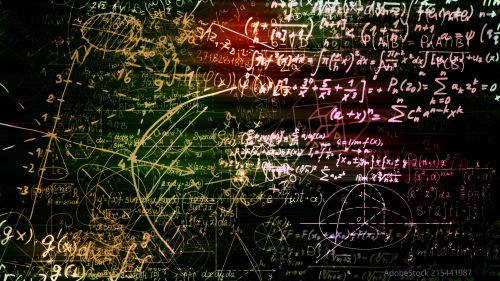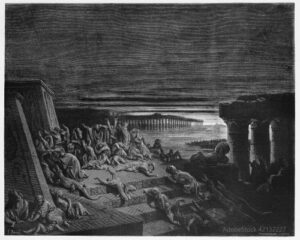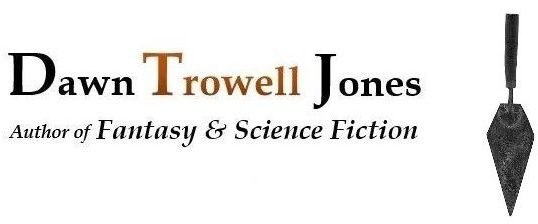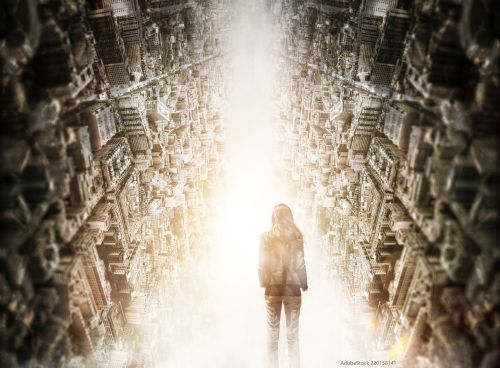 It’s possible to know the future. Asimov in his Foundation series imagined so with Hari Seldon’s psychohistory, where a mathematical formula is able to plot the psycho-social movements of a connected people across great distances and large swaths of time. But not the choices of individuals.
It’s possible to know the future. Asimov in his Foundation series imagined so with Hari Seldon’s psychohistory, where a mathematical formula is able to plot the psycho-social movements of a connected people across great distances and large swaths of time. But not the choices of individuals.
I was on my couch with my husband the other day, a bright sunny Saturday, late morning, birds in the bushes, sparse leaves pointing down from threadlike stems. He shielded his eyes, squinting at me, while I tried to put together a few feverish thoughts. What spurred all this was a deep emotional need to understand what’s going on in this world right now, what is happening. I realize I’m not alone. Something’s up. I just wanted to articulate an idea, put it out there, something to work with. He listened. Not sure I pulled it off, but at the end, he said he was glad to be stuck in this elevator with me, and that made me smile.
I started with the premise that it’s possible to know the future. I mean it appears some knew it would look like this. It seems that what drives these broad occurrences may essentially be the same water behind the wave, traceable to the same seismic shift. Western culture reveres the individual and sees nature as subservient, a commodity to use and use up. Is it so hard to imagine that someone might extrapolate in 5000 BC that populations could explode and be so closely packed that they make each other sick, darken the sky, flood lowlands, cause the earth to subside in mini-quakes, overutilize and sterilize the soil, which disrupts evaporation cycles, triggering drought and fires? That such people living in such times might choose unfeeling and careless leaders who make a game of scarcity? Be on the winning team, they’d say. Hold the line. Crush dissent.
 We all grew up with warnings of cataclysm, often as entertainment, a farce – all those things can’t possibly happen at once, we thought, not in one day, not even in one month. Not in one location. But our sense of place has shifted drastically in recent decades. Now, it seems we’re there, with hurricanes, floods, droughts, fire, wars, disease, and so many of our most trusted leaders arrogant, emotionally underdeveloped, and willfully blind. We see it under our noses every morning over coffee – right before we pet the dog and take the trash out.
We all grew up with warnings of cataclysm, often as entertainment, a farce – all those things can’t possibly happen at once, we thought, not in one day, not even in one month. Not in one location. But our sense of place has shifted drastically in recent decades. Now, it seems we’re there, with hurricanes, floods, droughts, fire, wars, disease, and so many of our most trusted leaders arrogant, emotionally underdeveloped, and willfully blind. We see it under our noses every morning over coffee – right before we pet the dog and take the trash out.
I recently read that democracy has an inherent flaw. It’s not the first time I’ve heard this. A terrible form of government, someone once said, but the best we’ve got. Long ago I put aside my brief infatuation with anarchy when it became obvious to me that, as a social species, we’re incapable of it. There will always be a level of organization, and the minute you organize, there’s hierarchy. It happens the minute you say “we”. An article I read in December’s issue of Psychology Today titled “In the Seat of Pathocracy” by Steve Taylor, Ph.D., stated that in any democratic system sociopaths and narcissists will eventually rise to the top. The impulses that drive them – high levels of “ambition and ruthlessness,” the desire to “control and command” – give them an edge and embolden followers like them with less skill but the same impulses and deficits. Though democracy gives these leaders access and opportunity, they hate democracy and will work to undermine it once they’re in power. Our form of government is an experiment, and a young one at that, but there have been other democratic systems. We like to think it was simply the peculiarities of the times that led to those downfalls and made it easy for a Hitler or Stalin to take over. But this article makes the case that a democracy by its very nature will always sift the autocrat to the top. Julius Caesar was inevitable. That’s exactly why democracies like ours have elaborate checks and balances.
 My mother is a retired public high school teacher. During last week’s visit with her, she said this to me (CNN on in the background): “People just don’t understand. There are three things that can seriously interfere with children’s ability to learn: One, when they’re hungry. Two, when they’re sleep-deprived. And three, when they’re afraid.” Not just children, wouldn’t you agree?
My mother is a retired public high school teacher. During last week’s visit with her, she said this to me (CNN on in the background): “People just don’t understand. There are three things that can seriously interfere with children’s ability to learn: One, when they’re hungry. Two, when they’re sleep-deprived. And three, when they’re afraid.” Not just children, wouldn’t you agree?
Forgive me if I incorrectly believe calamities are everywhere and end times are near due to the constant barrage of sensationalist news and people agitated by it. The truth is a commodity to be sculpted, packaged, and sold. If we didn’t before, we certainly know now that fear sells somewhat better than hope. How long can our psyches resist the pressure? We’re Morpheus in the chair, under the pressure of a hack.
 But not all of us will be sucked in. You know what happens when a star – one too big to simply fail – burns up all its fuel and makes iron? It can’t use iron – bad fuel, too dense for fusion, causes a hiccough, a lapse in the necessary energy to prop the star up. This takes only a fraction of a second, but the star is so large, its core will already be dead and collapsing before its exterior knows what hit it. The core sucks into itself. But the implosion is so violent, the energies so enormous, that the particles rebound, and some fly outward. The implosion becomes an explosion. This is called a supernova – the seeds of a “superior” “new” beginning for other star systems out of the far-flung dust of dead predecessors. To glow, to fade, to float in the black frozen waste of interstellar space; then, much later, to draw to one another, to clump, to grow massive, to spin, to press inward, to fuse, to exude, to burn, to burn brightly… all together. For a while.
But not all of us will be sucked in. You know what happens when a star – one too big to simply fail – burns up all its fuel and makes iron? It can’t use iron – bad fuel, too dense for fusion, causes a hiccough, a lapse in the necessary energy to prop the star up. This takes only a fraction of a second, but the star is so large, its core will already be dead and collapsing before its exterior knows what hit it. The core sucks into itself. But the implosion is so violent, the energies so enormous, that the particles rebound, and some fly outward. The implosion becomes an explosion. This is called a supernova – the seeds of a “superior” “new” beginning for other star systems out of the far-flung dust of dead predecessors. To glow, to fade, to float in the black frozen waste of interstellar space; then, much later, to draw to one another, to clump, to grow massive, to spin, to press inward, to fuse, to exude, to burn, to burn brightly… all together. For a while.
What do we hope for ourselves? More? Well, then, we’ll have to do better than that.
I just read “The Merchant and the Alchemist’s Gate,” a short story by Ted Chiang in his collection titled Exhalation. It was touching, mature, a delicate interplay of humanism and faith. The mysteries of individual outcomes are left, in this case, to Allah, a course undisclosed but predetermined, but, through kindness to ourselves and those we love, we can tinker with events and bring about the small tender mercies that make life sing. The gate can take a person into the future or the past but can’t change what happens, only illuminate it, but the causality becomes complex. Past and future fold into one another – harmoniously, elegantly, a lovely song, a melody that flows in both directions. It made me think of storytelling itself, not just for me, we all tell stories, but which has felt to me like listening to a song from some hidden place, like a dream that wants to manifest, to cohere and be. A story built out of my past and all who inhabit it, my hopes for the future, my efforts in the now, all rolled up into a perpetual present. A perpetual reshaping of the now. A story that is nevertheless destined to vanish almost as soon as aired.
 Past and future flowing into the present. What an interesting thought. In which case, the future should be as knowable as the past.
Past and future flowing into the present. What an interesting thought. In which case, the future should be as knowable as the past.
As I recall, at the tail end of these prophesies of doom, like those in Revelation(s) and Nostradamus — pop-culture’s favorites — after a painful cycle of earthquakes, fires, storms, and cruelty, there will come three thousand years of peace. Since I was a child, I’ve wondered what this peace will look like, and why only after so much misery can there be three thousand uninterrupted years of it. Why not more? And why do we as a collective slip when three thousand years are up? And then I admonish myself, which brings a smile when I think of it: Oh, Dawn, don’t be greedy. Wouldn’t three thousand years be nice?

